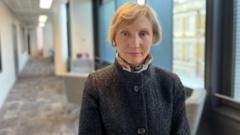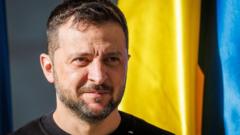Marina Litvinenko, the widow of former Russian spy Alexander Litvinenko, has expressed deep concern about the lack of meaningful action following her husband’s assassination and subsequent poisoning incidents in the UK. Alexander Litvinenko was poisoned with Polonium 210 in London in 2006, with a public inquiry in 2016 concluding that Russian President Vladimir Putin was “probably” behind the assassination.
The article highlights the similarities between Alexander Litvinenko’s murder and the later Salisbury poisonings, which involved former Russian spy Sergei Skripal and his daughter Yulia, as well as the tragic death of Dawn Sturgess in 2018. Marina Litvinenko believes that the lack of strong consequences has emboldened those responsible, stating, “By not strengthening protection against an attack, people who commit crimes like this feel relaxed, it means they might do this again.”
Alexander Litvinenko had sought asylum in Britain in 2000 after becoming a fierce critic of the Kremlin. He had previously worked for the Federal Security Service (successor to the KGB) but later secured work with British intelligence agency MI6 and obtained British citizenship. He believed the UK would be a safe place for him and his family.
On 1 November 2006, Litvinenko met with Andrei Lugovoi and Dmitri Kovtun for tea in London, unknowingly ingesting a radioactive substance. His condition deteriorated over three weeks, ultimately leading to his death on 23 November.
When the Skripals were found poisoned in Salisbury in March 2018, Marina Litvinenko was shocked. She believed that after the public inquiry into her husband’s death, authorities would take stronger measures to protect citizens. However, she felt that the response was inadequate.
Marina Litvinenko is particularly critical of the handling of Sergei Skripal’s case, suggesting that security services should have insisted he change his name due to the risks. She emphasized the broader responsibility to protect the public, stating, “It’s unbelievable what people just suffered because somebody decided to punish somebody in another country.”
Regarding Dawn Sturgess’s death, Litvinenko described her as an “innocent victim” and expressed frustration that ordinary British citizens could be caught in the crossfire of international conflicts.
While acknowledging that security has become more serious since 2018, she believes it is still not enough. She feels let down by the UK government and believes her late husband would share her disappointment.
Litvinenko hopes that the ongoing inquiry into Sturgess’s death will at least provide her family with some understanding of what happened. She concludes by emphasizing the importance of humanity in political decisions, urging politicians to prioritize people’s lives and safety.
The Russian government continues to deny involvement in these poisoning incidents.




